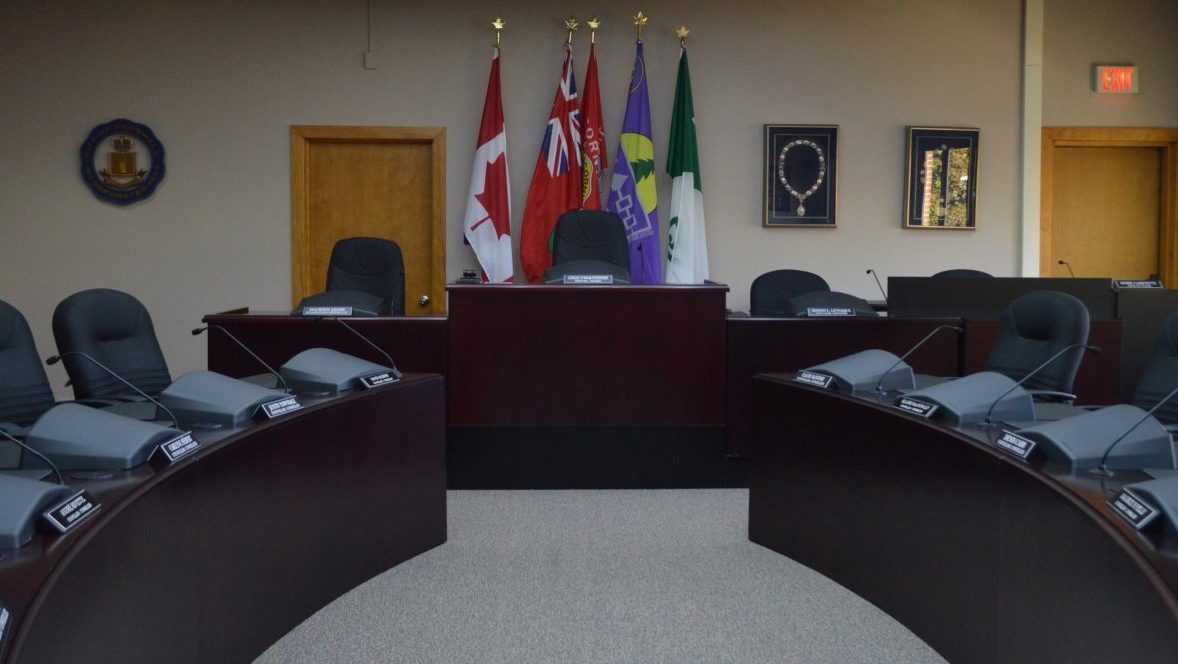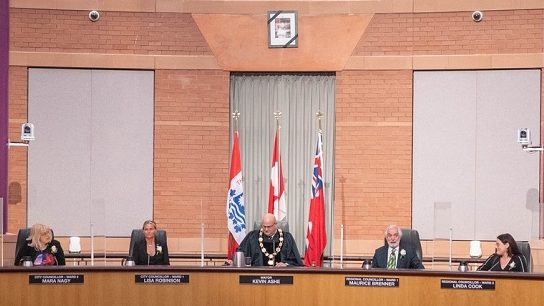The Constitution Act, 1867, outlines the division of responsibilities between the federal Parliament and the provincial legislatures.
Responsibilities
Federal
- Aboriginal Lands & Rights
- Citizenship and Immigration
- Criminal Law
- Competition
- Copyright
- Employment Insurance
- Foreign Policy
- Income Taxes
- Money and Banking (Bank of Canada)
- National Defence/Military
- National parks
- Telecommunications and broadcasting (internet, phones & TV)
- Trade and Commerce
- Canada Post Office
- Census
Provincial
- Administration of Justice
- Education (including colleges and universities)
- Healthcare (primarily)
- Long-Term Care
- Energy
- Highways
- Hospitals
- Labour standards
- Natural Resources and Environment
- Prisons
- Property and Civil Rights in Ontario
- Provincial parks
- Sales tax
- Social Services
- Transportation
Municipal
- Social Housing
- Storm Sewers
- Tax Collection
- Water and Waste Water (Sewage)
Federal and provincial shared responsibilities
There is some overlap between the federal and provincial levels of government, known as areas of concurrent jurisdiction.
Shared (concurrent) powers are specified in Sections 94A and s. 95 of the Constitution Acts, 1867 to 1982.
They are:
- Old age pensions
- Immigration
- Agriculture
Other areas are not specifically identified and assigned to one or both orders of governments in the Constitution Act, 1867. Both levels of government can pass laws, and if there is a conflict, the dispute may be settled through the justice system.
The courts have found that these areas – which have become priorities in recent years – come under various legislative powers, some federal, others provincial.
- Healthcare
- Environment
More: Federal/provincial responsibility-sharing creates inefficiencies, neglect
Shared responsibilities in Ontario
The following services are cost-shared between the federal, provincial and municipal governments in Ontario.
Cost-sharing is largest for health and social services, making the lines of accountability more opaque and questions about local input and autonomy most pronounced.
- Homelessness
- Social housing
- Affordable housing
- Healthcare
- Ontario Disability Support Program (ODSP)
- Ontario Works (OW)
Public Health
The responsibility for public health, which includes sanitation, infectious diseases and related education, is shared between the three orders of government: federal, provincial/territorial and local or municipal. However, these services are generally delivered at the provincial/territorial and local levels.
Or watch this educational rap video by TVO:
Definitions
Federal
Legislative Authority of Parliament of Canada
It shall be lawful for the Queen, by and with the Advice and Consent of the Senate and House of Commons, to make Laws for the Peace, Order, and good Government of Canada, in relation to all Matters not coming within the Classes of Subjects by this Act assigned exclusively to the Legislatures of the Provinces; and for greater Certainty, but not so as to restrict the Generality of the foregoing Terms of this Section, it is hereby declared that (notwithstanding anything in this Act) the exclusive Legislative Authority of the Parliament of Canada extends to all Matters coming within the Classes of Subjects next hereinafter enumerated; that is to say,
Distribution of Legislative Powers – THE CONSTITUTION ACTS 1867 to 1982
- The Public Debt and Property
- Regulation of Trade and Commerce
- Unemployment insurance
- Raising of Money by any Mode or System of Taxation
- Borrowing of Money on the Public Credit
- Postal Service
- Census and Statistics
- Militia, Military and Naval Service, and Defence
- Fixing of and providing for the Salaries and Allowances of Civil and other Officers of the Government of Canada
- Beacons, Buoys, Lighthouses, and Sable Island
- Navigation and Shipping
- Quarantine and the Establishment and Maintenance of Marine Hospitals
- Sea Coast and Inland Fisheries
- Ferries between a Province and any British or Foreign Country or between Two Provinces
- Currency and Coinage
- Banking, Incorporation of Banks, and the Issue of Paper Money
- Savings Banks
- Weights and Measures
- Bills of Exchange and Promissory Notes
- Interest
- Legal Tender
- Bankruptcy and Insolvency
- Patents of Invention and Discovery
- Copyrights
- Indians, and Lands reserved for the Indians
- Naturalization and Aliens
- Marriage and Divorce
- Criminal Law, except the Constitution of Courts of Criminal Jurisdiction, but including the Procedure in Criminal Matters
- Establishment, Maintenance, and Management of Penitentiaries
Provincial
Subjects of exclusive Provincial Legislation
In each Province the Legislature may exclusively make Laws in relation to Matters coming within the Classes of Subjects next hereinafter enumerated; that is to say,
Distribution of Legislative Powers – THE CONSTITUTION ACTS 1867 to 1982
- Direct Taxation within the Province in order to the raising of a Revenue for Provincial Purposes
- Borrowing of Money on the sole Credit of the Province.
- Establishment and Tenure of Provincial Offices and the Appointment and Payment of Provincial Officers.
- Management and Sale of the Public Lands belonging to the Province and of the Timber and Wood thereon.
- Establishment, Maintenance, and Management of Public and Reformatory Prisons in and for the Province.
- Establishment, Maintenance, and Management of Hospitals, Asylums, Charities, and Eleemosynary Institutions in and for the Province, other than Marine Hospitals.
- Municipal Institutions in the Province.
- Shop, Saloon, Tavern, Auctioneer, and other Licences in order to the raising of a Revenue for Provincial, Local, or Municipal Purposes.
- Local Works and Undertakings other than such as are of the following Classes:
- (a) Lines of Steam or other Ships, Railways, Canals, Telegraphs, and other Works and Undertakings connecting the Province with any other or others of the Provinces, or extending beyond the Limits of the Province:
- (b) Lines of Steam Ships between the Province and any British or Foreign Country:
- (c) Such Works as, although wholly situate within the Province, are before or after their Execution declared by the Parliament of Canada to be for the general Advantage of Canada or for the Advantage of Two or more of the Provinces.
- The Incorporation of Companies with Provincial Objects.
- The Solemnization of Marriage in the Province.
- Property and Civil Rights in the Province.
- The Administration of Justice in the Province, including the Constitution, Maintenance, and Organization of Provincial Courts, both of Civil and of Criminal Jurisdiction, and including Procedure in Civil Matters in those Courts.
- The Imposition of Punishment by Fine, Penalty, or Imprisonment for enforcing any Law of the Province made in relation to any Matter coming within any of the Classes of Subjects enumerated in this Section.
- Generally all Matters of a merely local or private Nature in the Province.
Municipal
Municipalities are entirely creatures of provincial statutes. Accordingly, they can only exercise those powers which are explicitly conferred upon them by a provincial statute.
Supreme Court of Canada – R. v. Greenbaum (1993), 14 M.P.L.R. (2d) 1 [at para. 20]
Section 92(8) of the Constitution Act, 1867 assigns to provinces exclusive legislative authority regarding “Municipal Institutions in the Province”. Municipalities incorporated under this authority therefore hold delegated provincial powers; like school boards or other creatures of provincial statute, they do not have independent constitutional status (Public School Boards’ Assn. of Alberta v. Alberta (Attorney General), 2000 SCC 45, [2000] 2 S.C.R. 409, at paras. 33‑34). The province has “absolute and unfettered legal power to do with them as it wills”
Supreme Court of Canada – Toronto (City) v. Ontario (Attorney General) (2021) 20 M.P.L.R (6th) 1
Sources
- Distribution of Legislative Powers – THE CONSTITUTION ACTS 1867 to 1982
- The constitutional distribution of legislative powers – Intergovernmental Affairs Canada (2021)
- Municipalities, The Constitution, and the Canadian Federal System
- In It Together: Clarifying Provincial-Municipal Responsibilities in Ontario
- The role of municipalities within Federalism – IRPP
- Levels of Government in Canada: Who Does What?
- Federal-Provincial Program Overlap – Economics Division (1992)




Comments
We want to hear from you! Share your opinions below and remember to keep it respectful. Please read our Community Guidelines before participating.